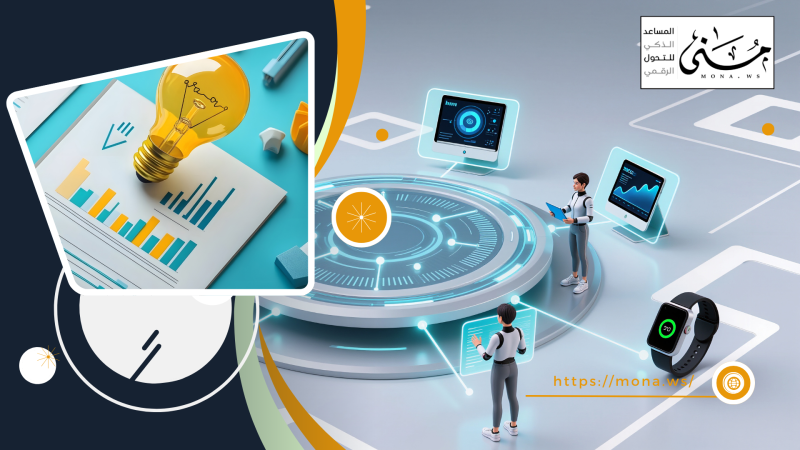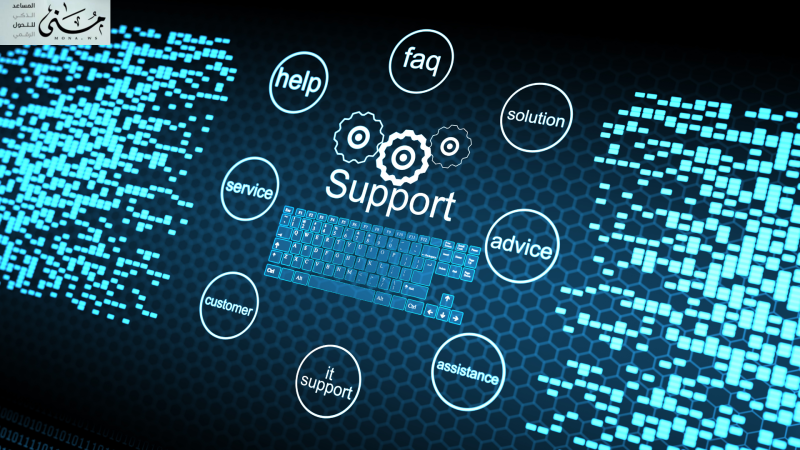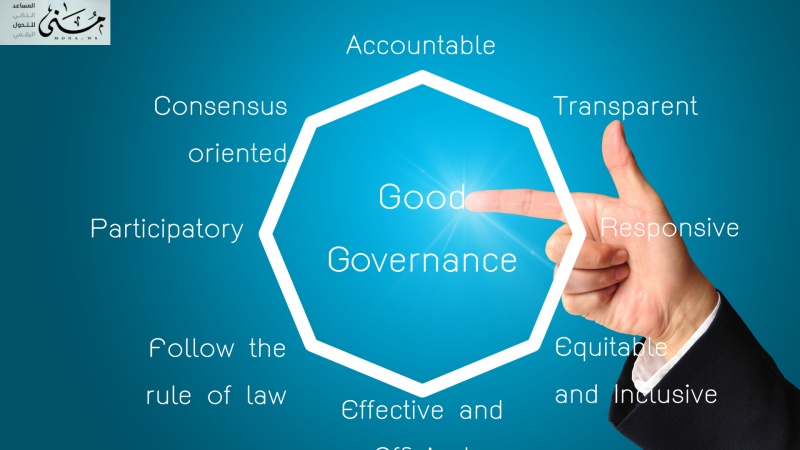In today's fast-paced business world, governance functions have become essential to running organizations efficiently, as governance plays a pivotal role in enhancing transparency, achieving compliance, and improving organizational performance.
In this article, we will review the basic governance functions, explaining the role of modern technical systems in supporting them, which helps organizations achieve excellence and sustainability.
Promoting transparency and accountability within institutions
Transparency and accountability are among the most important functions of governance, as they contribute to building a business environment based on trust and integrity, which enhances relationships with stakeholders such as investors, employees, and customers. Governance ensures that decisions are made based on accurate data, which reduces the possibility of administrative corruption or conflicts of interest.
Supports e-governance systems such as:SAP GRC and Diligent Governance Cloud help organizations achieve high levels of transparency, providing tools to monitor performance, prepare financial reports, and ensure departments adhere to ethical and regulatory standards.
When governance functions are effectively implemented, it becomes easier to evaluate the performance of individuals and teams, facilitating decision-making and course correction when needed.
Risk Management and Corporate Crisis Mitigation
Risk management is a vital function that affects the sustainability of companies, as governance functions help anticipate potential challenges and develop rapid and effective response plans. By analyzing operational, financial, and legal risks, organizations can make proactive decisions that reduce the impact of sudden crises.
Global companies use advanced systems such as:IBM OpenPages and Microsoft Compliance Manager monitor risks and analyze operational data, enabling intelligent and efficient risk management. When governance functions are well-functioning, organizations are better able to deal with economic and financial variables, and remain able to achieve their strategic objectives even in difficult times.
Improving board performance and enhancing decision-making
Boards of directors are the backbone of any organization, responsible for setting strategies and guiding businesses towards success. One of the most important functions in this context is to establish a clear framework for the distribution of responsibilities within the board, and to ensure a balance between the various authorities.
Many organizations rely on systems such as:Docsuite, BoardEffect and OnBoard Board Management Software to track board performance and analyze data related to strategic decisions. Vital governance functions provide accurate information and regular updates to the board, helping it make decisions based on scientific and analytical foundations, rather than relying on intuition or personal experiences alone.
Compliance with legal and regulatory standards
Compliance with standards and legislation is one of the most important governance functions that ensure the stability of institutions and their avoidance of legal consequences. When an institution adheres to local and international laws, it maintains its reputation and reduces the possibility of imposing fines or being exposed to legal accountability.
Compliance systems such as:Docsuite, Oracle Risk Management & Compliance and Microsoft Compliance Manager provide integrated solutions to keep track of new laws and update internal policies accordingly.
Vital governance functions ensure that an organization remains compliant with regulations, enhancing its sustainability and protecting it from legal and operational risks.
Promoting sustainability and social responsibility
Governance functions are no longer limited to administrative and financial aspects only, but have come to play a major role in supporting sustainability and corporate social responsibility. Modern trends require organizations to adopt environmentally friendly practices and contribute to the development of the community in which they operate.
Large companies use systems such as:Diligent ESG to monitor the environmental and social impact of its activities, helping to achieve environmental, social and economic goals.
When organizations properly implement the vital governance functions related to sustainability, they build a strong reputation and enhance their relationships with customers and investors who seek socially responsible companies.
Automate processes and improve operational efficiency
Governance functions help improve the efficiency of administrative processes by reducing paperwork and adopting digital systems that facilitate workflow within the organization. Automation contributes to accelerating decision-making, reducing human errors, and enhancing productivity in general.
DocSuite is one of the most prominent systems that provide advanced solutions for administrative automation, as it allows the organization of administrative documents and communications electronically, which reduces reliance on paper files and improves the flow of information within the organization. When the governance functions of automation are implemented effectively, it becomes possible to achieve more efficient performance and flexibility in the face of operational challenges.
Strengthening stakeholder relationships and innovation
One of the most important functions of governance is that it contributes to improving the relationship between the organization and stakeholders such as customers, employees, and investors. By providing transparent and clear channels of communication, organizations can gain the trust of these parties and enhance the level of cooperation and investment in the future.
Large companies rely on platforms like:Diligent Governance Cloud facilitates communication between management and stakeholders, providing advanced tools for sharing reports, holding virtual meetings, and ensuring that important information reaches everyone in a timely manner.
Governance functions are not limited to regulatory aspects only, but extend to supporting a culture of innovation and continuous development. When policies are put in place that encourage research and development, it becomes possible to achieve sustainable growth and adapt to changes in the market.
Organizations use systems such as:IdeaScale Governance to generate new ideas and analyze their feasibility, allowing innovations to be implemented in a thoughtful and systematic manner. When innovation governance functions are strengthened, an organization is able to keep up with challenges and take advantage of new opportunities efficiently.
Improving organizational structure and distribution of powers
An effective organizational structure is one of the foundations on which organizations rely to ensure efficient workflow. Governance functions help define roles and responsibilities within the organization, preventing overlap in tasks or conflicts of interest. Clear distribution of powers also ensures that appropriate decisions are made at the appropriate time, without disrupting operations due to excessive centralization or lack of accountability.
Large companies rely on systems such as:Workday Adaptive Planning and SAP Organizational Management to analyze organizational data, and identify areas that need improvement in the organizational structure. When the governance functions of the structure are clear and effective, it becomes possible to achieve integration between different departments and enhance collaboration between teams, which leads to improving the overall performance of the organization.

Monitor performance and ensure achievement of strategic objectives.
The vital functions of governance include not only setting plans and strategies, but also monitoring their implementation and evaluating performance on an ongoing basis. This helps ensure that resources are used efficiently and that set goals are achieved on schedule.
Modern companies rely on systems such as:Docsuite, Balanced Scorecard Software and Tableau Performance Analytics to track corporate performance and analyze data related to operational results.
When performance measurement governance functions are in place, weaknesses can be quickly detected and addressed, improving productivity and ensuring sustainable growth.
Governance functions are essential to corporate success, contributing to enhanced transparency, improved performance, reduced risk, and compliance with legal standards.
By adopting advanced systems such as DocSuite andSAP GRC, Organizations can achieve higher levels of efficiency and sustainability, In a challenging world, governance functions remain indispensable to ensure sustainable growth and enhance competitiveness.
 وظائف الحوكمة عنصرًا أساسيًا في تحقيق النجاح المؤسسي
وظائف الحوكمة عنصرًا أساسيًا في تحقيق النجاح المؤسسي










Comments
Add New Comment